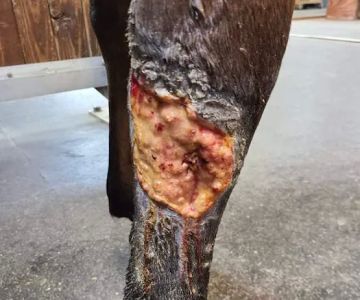What’s Needed to Become a Veterinarian: A Step-by-Step Guide
- 1. Education Requirements for Aspiring Veterinarians
- 2. The Process of Applying to Veterinary Schools
- 3. Gaining Hands-On Experience in Veterinary Medicine
- 4. Necessary Certifications and Licensing
- 5. Career Opportunities for Veterinarians
- 6. Real Stories from Veterinarians: Challenges and Rewards
1. Education Requirements for Aspiring Veterinarians
Becoming a veterinarian requires a significant commitment to education. At the heart of this journey is a strong academic foundation in science, particularly biology, chemistry, and physics. To embark on this career, students typically need a bachelor's degree in a related field such as animal science, biology, or pre-veterinary studies. However, simply completing a bachelor’s degree is not enough—veterinary schools are highly competitive, and applicants are expected to have a strong academic record, excellent GRE scores, and substantial experience working with animals.
The next step is attending an accredited veterinary school, which generally requires four years of advanced education beyond the undergraduate level. This education includes both classroom learning and hands-on training. The curriculum covers a broad range of subjects, including animal anatomy, pathology, pharmacology, surgery, and ethics. Throughout veterinary school, students develop critical thinking and problem-solving skills that are essential for diagnosing and treating animals effectively.
2. The Process of Applying to Veterinary Schools
To apply to veterinary schools, candidates must meet specific academic and experience requirements. Most veterinary schools require applicants to have completed at least two years of undergraduate study, although many successful applicants have completed a full bachelor's degree. Additionally, veterinary schools prefer candidates who have substantial experience in animal care, which can include working as a veterinary assistant, volunteering at animal shelters, or gaining hands-on experience in research or clinical environments.
In addition to academic qualifications, students must take the Graduate Record Examination (GRE), and some schools may also require the Veterinary College Admission Test (VCAT). These standardized tests assess verbal reasoning, quantitative reasoning, and analytical writing skills, all of which are essential for a career in veterinary medicine. As veterinary schools are highly competitive, applicants often need to demonstrate exceptional academic performance, excellent test scores, and a strong passion for animal care.
3. Gaining Hands-On Experience in Veterinary Medicine
Hands-on experience is one of the most important aspects of becoming a successful veterinarian. Most veterinary schools require applicants to have completed a certain number of hours working with animals in various capacities. This experience not only builds essential skills but also helps students understand the realities of veterinary medicine. It provides valuable insights into animal care, from routine check-ups to emergency procedures.
Moreover, students gain practical experience during their veterinary education, often through clinical rotations at veterinary hospitals or research labs. These rotations allow students to work directly with patients under the supervision of experienced veterinarians. Students learn to perform diagnostic tests, administer treatments, and provide preventive care, all while honing their interpersonal skills by communicating with pet owners and other professionals.
4. Necessary Certifications and Licensing
After completing veterinary school, graduates must pass a licensing exam before they can practice as veterinarians. In the United States, this exam is administered by the American Veterinary Medical Association (AVMA) and is called the North American Veterinary Licensing Examination (NAVLE). This exam tests knowledge in clinical medicine, diagnostics, and surgical procedures. Some states may also have additional licensing requirements, including state-specific exams or continuing education.
In addition to the NAVLE, many veterinarians choose to pursue board certification in specialized areas of veterinary medicine, such as surgery, internal medicine, or dermatology. This certification requires additional training and testing, but it allows veterinarians to demonstrate advanced expertise in their chosen field. While board certification is not required to practice, it can open doors to specialized career opportunities and higher salaries.
5. Career Opportunities for Veterinarians
Veterinarians have a wide range of career options available to them, depending on their interests and areas of expertise. Most veterinarians work in private practices, providing care for pets and other animals. Some veterinarians choose to work in public health, animal shelters, or research labs, where they can contribute to the health and welfare of animals on a broader scale. Others work in agricultural settings, overseeing the health of livestock and ensuring the safety of the food supply.
In recent years, there has been growing demand for veterinarians who specialize in exotic animal care, wildlife conservation, and veterinary public health. As these fields continue to expand, veterinarians with specialized training in these areas are increasingly sought after. Furthermore, veterinarians may choose to work in academia, conducting research or teaching the next generation of veterinary professionals.
6. Real Stories from Veterinarians: Challenges and Rewards
To understand what it's truly like to be a veterinarian, it’s helpful to hear from those who have already embarked on this path. Dr. Jane Smith, a small animal veterinarian with over 15 years of experience, shares her journey: “The most rewarding part of being a veterinarian is knowing that I’m making a difference in the lives of animals and their owners. It’s not always easy—long hours and emotional cases can be tough—but the bond I share with the animals I treat makes it all worth it.”
Dr. Smith’s story highlights the challenges faced by veterinarians, from dealing with difficult diagnoses to managing the emotional toll of euthanizing animals. But it also underscores the deep sense of fulfillment that comes with the profession. For aspiring veterinarians, it’s important to understand both the rewards and the challenges of the job and to be prepared for the hard work and dedication required to succeed.
As you consider becoming a veterinarian, remember that this career path requires dedication, compassion, and a lifelong commitment to learning. Whether you’re passionate about helping pets or want to make an impact in wildlife conservation, veterinary medicine offers numerous opportunities to make a meaningful difference in the world.











